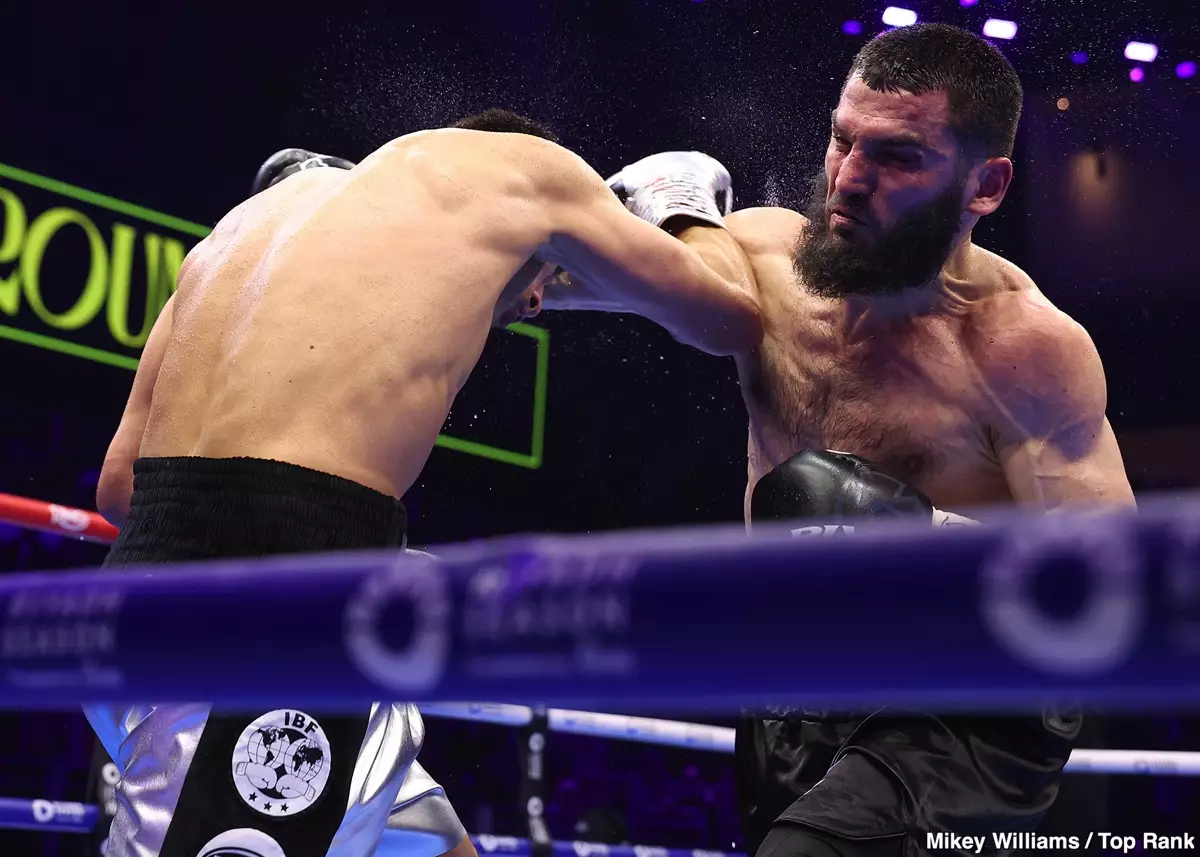In the world of professional boxing, the influence of judges can often overshadow the fighters themselves, leading to controversial outcomes that stir debates among fans, trainers, and analysts alike. The recent rematch between Artur Beterbiev and Dmitry Bivol has become a prime example of this phenomenon, as criticisms of the judges’ decisions emerged almost immediately following the bout.
Artur Beterbiev, with a record of 21 wins (20 by knockout) and just one loss, faced off against Dmitry Bivol in a highly anticipated rematch. Coach Marc Ramsay’s assessment of the first half of the fight indicated that Beterbiev was dominant, claiming he had his fighter leading 5-1 in the first six rounds. Such a claim draws attention to how the fight unfolded; Ramsay’s belief that Beterbiev had won key rounds paints a picture fundamental to understanding the fight’s controversy.
Beterbiev’s evident strength was demonstrated particularly during rounds 3 to 6, where he seemed to dictate the pace. Fans and analysts noted that Bivol, with a record of 24 wins (12 by knockout) and one loss, appeared to be on the defensive, often relying on clinching and maneuvering rather than engaging in a competitive striking exchange. The scrutiny lies behind whether Bivol’s tactics were effectively defensive or if they indicated an avoidance of Beterbiev’s power.
Ultimately, the fight concluded with a majority decision favoring Bivol, whose scorecards read 115-113, 116-112, and a draw at 114-114. Many observers, including this writer, found the scorecards questionable, suggesting that a draw or a narrow victory for Beterbiev would have been more justified, particularly considering how round twelve was perceived as a clear win for Beterbiev. This raises a pertinent discussion about the role of judges and their interpretation of a fighter’s performance versus tactics.
The notion of judges being influenced by past fights, particularly Beterbiev’s previous win over Bivol, adds another layer of complexity. Was this decision an attempt to balance perceived injustices from previous matchups, or did it reflect an inherent bias within the judging community?
With the unsatisfactory decision hanging over him, one must ponder the implications for Beterbiev’s career trajectory. If he continues to experience detrimental outcomes from judges, should he reconsider pursuing a trilogy match with Bivol, or divert his attention toward high-stakes bouts against formidable opponents like David Benavidez or Callum Smith? These matchups could yield thrilling contests without the looming risk of controversial officiating.
The Beterbiev vs. Bivol II rematch serves as a stark reminder of how subjective the sport of boxing can be, inviting passionate arguments on both sides. As fans and pundits continue to dissect the event, it becomes evident that a fighter’s legacy often hurdles over just their performances in the ring and into the realm of how those performances are judged. The ongoing dialogue surrounding this match illustrates the pressing need for increased transparency and consistency in boxing officiating.

